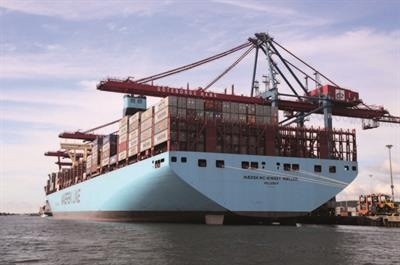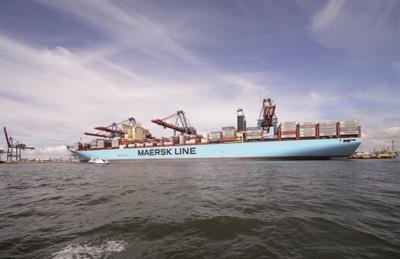With twin 8-cylinder MAN diesel engines and two propellers, the Mærsk Mc-Kinney Møller is the largest and most efficient container ship in the world. Capable of carrying 18,270 twenty-foot standard containers, only a few ports actually have gantry cranes tall enough to fully load the ship. The ship is the first of Mærsk’s ‘Triple-E’ class of vessels, with the three Es denoting the key design values of economy of scale, energy efficiency and environmental improvement.

This ship is one of many currently utilizing ABBS’s Cylmate pressure transducers to measure the combustion pressure of its electronically controlled diesel engines, and to optimize the performance of its engines.
Cylmate Pressure Transducers by ABB
Pressure transducers work by converting pressure into an analog electrical signal for interpretation and analysis. Cylmate pressure transducers, appropriate for both marine and power plant applications, are used to measure combustion pressure in cylinder engines, continuously and in parallel, across all load conditions.

With a measuring accuracy of 0.5 percent over the full range, ABB’s pressure transducers are not sensitive to clogging or heat flash from combustion gases, a common problem of membrane-based pressure transducers.

Furthermore, these instruments save money and improve energy efficiency by tuning and controlling the combustion pressure stroke-by-stroke, and do not require recalibration. An optimum and reliable engine performance results in reduced fuel consumption, equal power distribution, and is more likely to comply with environmental regulations.

The Cylmate pressure transducer is maintenance free with a lifetime performance of approximately 10 years, therefore offering major benefits to engine designers, engine builders, shipyards and shipowners.
- Warranty: 5 years
- Life time: >10 years
- Calibration: No calibration required
- Maintenance: No maintenance required
- Installation: Easy to install
- Accuracy: <0,5% of full scale
Applications and Benefits
Use of Cylmate pressure sensors will provide key knowledge for achieving consistent peak engine performance:
- lowered fuel consumption
- an engine in good balance will evade thermal and mechanical over-loads by guaranteeing that the power distribution is equal between the cylinders
- an optimized engine will allow for easier compliance with environmental protocols

This information has been sourced, reviewed and adapted from materials provided by ABB Measurement & Analytics.
For more information on this source, please visit ABB Measurement & Analytics.